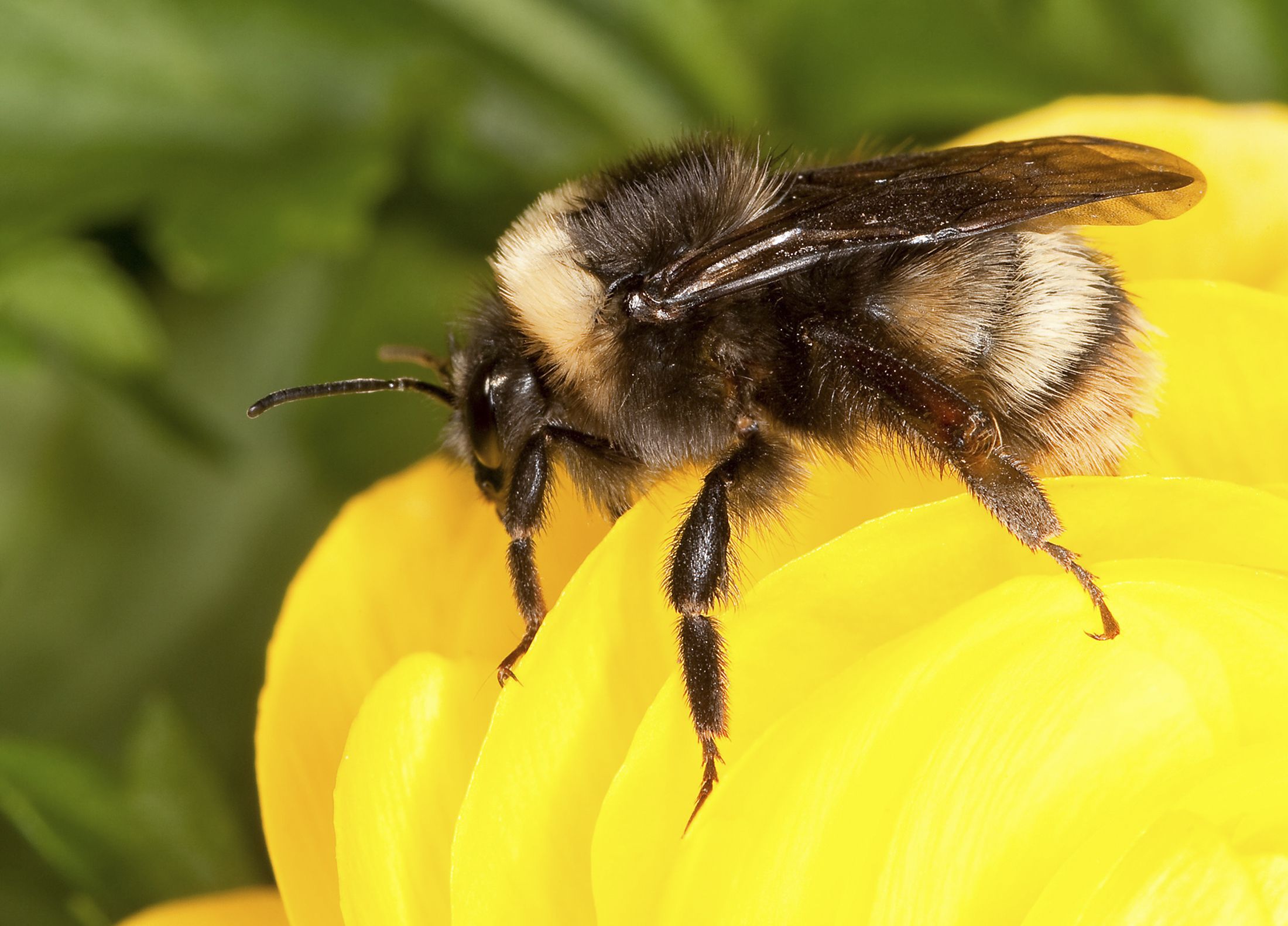
Bee populations in the U.S. are struggling, which means farmers are, too. Now the USDA is trying to keep up.
Each summer, beekeepers truck their hives to the pastures of the Upper Midwest, where their bees gather nectar and pollen. In the spring, they bring the hives back to states like California, where they pollinate the crops of mostly every fruit, vegetable, and nut we find in our supermarkets. Without that cycle, which is responsible for an estimated $40 billion in U.S. agricultural economy each year, our food sources would change drastically.
The U.S. Department of Agriculture is trying to get ahead of a nationwide problem of colony collapse disorder, in which honey bees suddenly disappear or die. The agency has funded bee disease studies, and has created a working group to address bee issues. Its latest effort, announced Tuesday, will send $3 million to help reseed pastures in Michigan, Minnesota, Wisconsin and the Dakotas with bee-appropriate plants. Increasing the availability of plants like alfalfa and clover will provide more foodstock for the thousands of commercial beekeepers who bring hives to those states each year, the Associated Press reported.
The president of the American Beekeeping Federation, Tim Tucker, has between 400 and 500 hives at sites in Kansas and Texas. Tucker told the AP that the fields near his farm in southeastern Kansas no longer provide adequate food for his bees. "There used to be a lot of small farms in our area that had clover and a variety of crops, whereas in the last 20 years it's really been corn, soybean and cotton and a little bit of canola," Tucker said. "But those crops don't provide a lot of good nectar and pollen for bees." Tucker heading to South Dakota this summer in hopes of giving his hives more to eat.
Pesticides, large monoculture plantings of unsuitable crops, and viruses have widely been blamed for the colony collapses, though the exact cause of the mass bee losses are unknown. Pesticide use has been linked to compromised immune systems, which leave the bees more vulnerable to viruses. A study last year found 35 pesticides and fungicides, some at lethal doses, in the pollen collected from bees that were used to pollinate food crops in five U.S. states. Bees that ate pollen contaminated with fungicides were found to be three times as likely to be infected by a parasite linked to colony collapse.
Uncommon Knowledge
Newsweek is committed to challenging conventional wisdom and finding connections in the search for common ground.
Newsweek is committed to challenging conventional wisdom and finding connections in the search for common ground.
About the writer
Zoë is a senior writer at Newsweek. She covers science, the environment, and human health. She has written for a ... Read more
To read how Newsweek uses AI as a newsroom tool, Click here.








